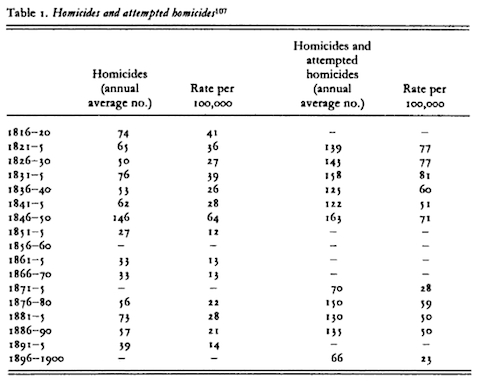
As a tremendous fan of the French movie A Prophet—I defy you to find a flick with a better razor-attack scene—I was naturally drawn to this recent account of Corsica’s organized-crime problem. The French-run island sounds like it’s run like the Brooklyn docks circa 1952, with men of violence calling the shots at all levels. But that said, I had to pause and scratch my head upon reading this paragraph, which sort of undermines the whole article’s reason for existence:
Bozzi’s murder was the seventh of the 22 that disgraced Corsica in 2011 — a slow year compared to 2010 (40) and 2009 (44). In 2012, violence is already picking up. As of May, there have been nine killings.
First, if there have been nine killings as of May, the homicide pace hasn’t really picked up all that much. If the trend continues, Corsica’s year-end homicide rate will be just shy of 9 per 100,000 residents—high for placid Western Europe, of course, but well below that of most American cities with reputations for poor security. More important, couldn’t that homicide rate also be celebrated as progress? As the article itself notes, the number of annual killings has dropped in recent years. And as you can tell from the data above (taken from this fine tome), Corsica is a far less violent place today than in decades past.
Yes, Corsica has serious problems with organized crime and its attendant violence, many of which can only be addressed to solving the island’s political situation. But wouldn’t it be interesting to know why, exactly, the place has become safer over the years?


Captured Shadow // May 22, 2012 at 11:50 am
Un-leaded gas? I haven’t actually read the studies so I am not sure how strong the correlation is between lead reduction and crime reduction 15-25 years later. But I understand that there is at least some evidence. Maybe Jordan has looked into it.
Brendan I. Koerner // May 22, 2012 at 12:33 pm
@Captured Shadow: I’ve long thought that the societal benefits of lead reduction are even greater than we’ve imagined. I’m convinced by the evidence that even moderately elevated lead levels can affect cognitive development. Which is why I’m surprised this isn’t a bigger issue for NGOs.